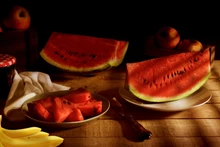
Winter is a fantastic time to enjoy the tastiest cuisines. To feel snug when eating Sarso Da Saag, a combination of seasonal cuisine and junk food is consumed with the warmth of a campfire. We must thus prepare ourselves for the chilly and severe weather this winter. Additionally, it is vital to pay attention to your food during the colder months since the likelihood of getting a cold or the flu is higher than before.
Health might suffer greatly during the winter. Put it down to the changing of the seasons or the fact that some illnesses and diseases spread more readily in colder areas. And eating the wrong foods can become problematic.
Are you still planning to drink a bottle of aerated beverage straight from the fridge now that winter has arrived? Don’t!
During this season, consuming cold meals and beverages can cause certain difficulties. Cold meals should not be consumed during the winter because your body is already working hard to maintain equilibrium with the chilly outside temperature. However, your body needs to work twice as hard to warm up cold foods to body temperature when you eat them. Not only that, but learn about other issues as well. There are various reasons why consuming cold food is an unhealthy option this winter.
The following are some difficulties that eating cold meals can cause:
Digestion
According to conventional ayurveda, eating warm food is preferable since it affects our digestive systems differently and causes them to respond more favorably. Although warm food is digested by the body more quickly than cold food, digestion of both types of food is equally effective since the digestive system quickly warms up food to body temperature. Your body will therefore strive to digest food as well whether it is hot, warm, or cold.
Discomfort In the Throat
Cold meals can irritate some people's sensitive throats, causing discomfort, irritation, and even pain. People with sensitive throats should avoid cold meals since their bodies become particularly susceptible to lower temperatures, as much as when they have a cold.
Lower body temperature
Consuming cold food changes how warm you feel. In Traditional Chinese Medicine, it is hypothesized that excessive coolness in the body affects fluid movement and circulation, resulting in a condition known as blood stasis, which refers to poor blood circulation. Especially women who are too stagnant can develop major issues including cysts, endometriosis, or fibroids.
Harmful Effects on the Immune System
Consuming cold meals might make you feel heavy in the body. They are more difficult to digest and can harm the immune system. Generally, it is advised to avoid cold-weather meals in winter and let your diet keep you warm. Many renowned nutritionists suggest including warm food in your regular diet to strengthen your defenses and provide your body with essential warmth.
Makes you more susceptible to the flu and the flu
According to specialists, the winter season can be a time when you are more prone to become ill. Although colds and coughs are not as severe as the flu, they can nevertheless make daily tasks more difficult. It's never enjoyable to cope with a stuffy nose, aching throat, and sneezing. Eating or drinking something that is not warm during the winter months when the temperature is already chilly can cause a reflexive cough.
Skip the chilly meals in winter and let your nutrition keep you warm. Some food items are to be included in your regular diet to strengthen your defenses and provide your body with essential warmth.
Some of these are Ghee, Dates, Semolina seeds, Jaggery, Ginger, Sweet potato, Nuts, Sarso da saag, and Saffron or Kesar. As you can see, beating the winter chill is entirely possible without too much hassle.











